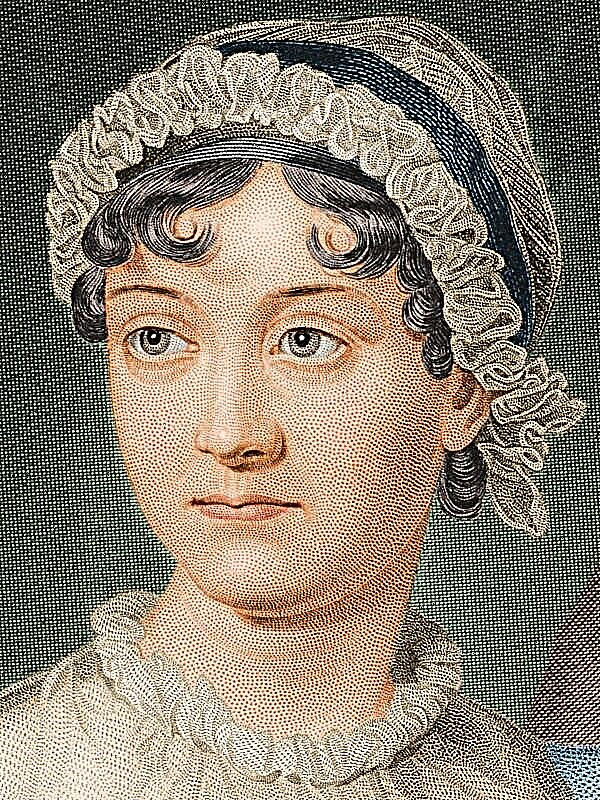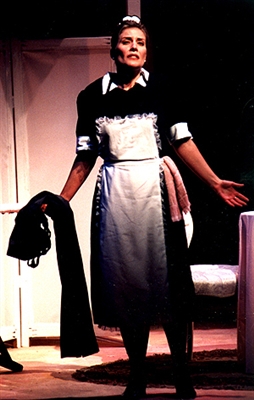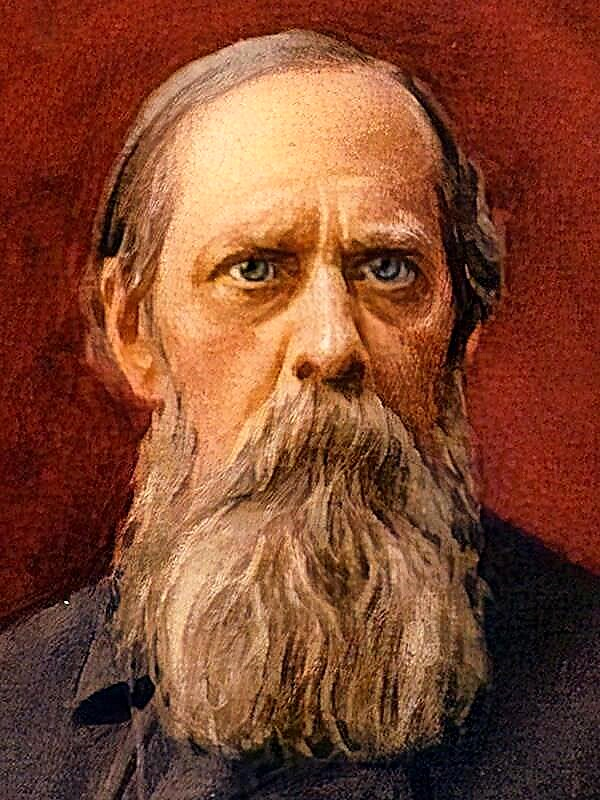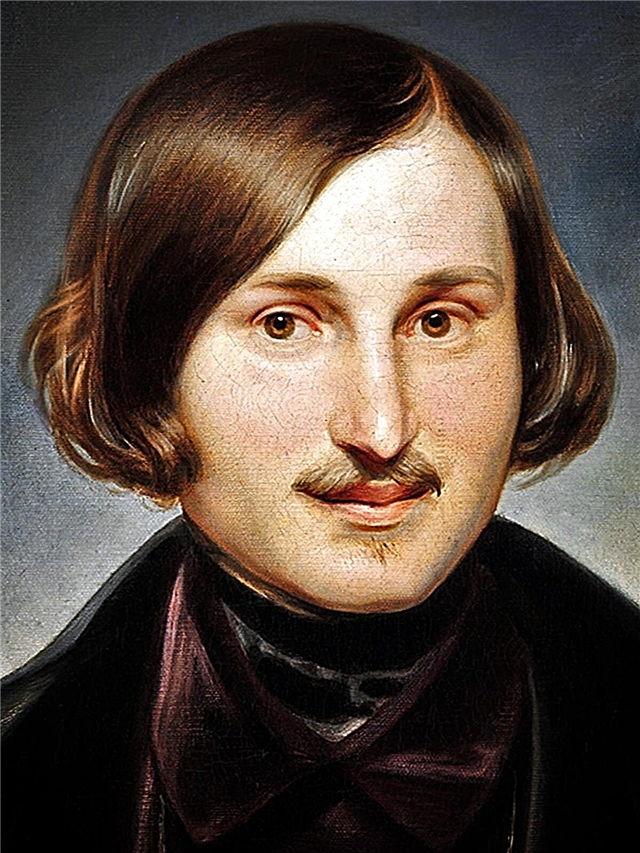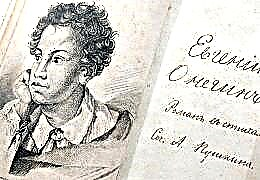Paris, end of 1790. From the conversation of Figaro, valet of the Spanish nobleman, Count Almaviva, and his wife Susanna, the first chamberlain of the countess, it becomes clear that since the count’s eldest son died, a dissolute hang on the whole family black shadow. The count is always gloomy and gloomy, his youngest son, Leon, he hates, and the countess barely tolerates. Moreover, he is going to make an exchange of all his possessions (to obtain, with the permission of the king of the land in France, giving away Spanish estates).
It’s all the fault of Bejars, the insidious Irishman who was a secretary at the count when he was acting as ambassador. This cunning intriguer "took possession of all family secrets", lured the count from Spain to France, where "everything is upside down" (a revolution takes place), hoping to quarrel the count with his wife, marry their pupil Florestine and take over the state of the count. Honore Bejars - “a man of low soul, a hypocrite, impeccably pretending to be honest and noble. Figaro calls him Honore-Tartuffe (venerable hypocrite). Bejars masterfully owns the art of sowing discord under the guise of the most faithful friendship and benefiting from it. The whole family is fascinated by him.
But Figaro, a Barber of Seville, who went through a severe school of life, a man endowed with a sharp mind and strong character, knows the true value of a deceiver and is determined to bring him to clean water. Knowing that Bejars has a certain inclination towards Suzanne, he tells her to "appease him, not deny him anything" and report on his every move. To increase Bejar’s confidence in Suzanne, Figaro and his wife play with him a scene of a fierce quarrel.
What are the plans of the new Tartuffe based on and what are the obstacles to their implementation? The main obstacle is love. The count still loves his wife, Rosina, and she still has influence on him. And Leon and Florestina love each other, and the countess encourages this affection. So, you need to remove the countess, finally quarreling with her husband, and make impossible the marriage of Leon and Florestina, and so that everything happens as if without the participation of Bejars. The count suspects that the countess, who always “was known as a moral woman, a zealot of piety and was therefore universally respected,” twenty years ago, cheated on him with the former page of Count Leon Astorg, nicknamed Cherubino, who “had the audacity to love the countess”. The count’s jealous suspicions are based on the fact that when he was appointed vice-king to Mexico, his wife decided to spend three years of his absence in the seedy castle of Astorg and nine or ten months after the count’s departure, he gave birth to a boy. In the same year, Cherubino died in the war. Leon is very similar to Cherubino and, in addition, surpasses the deceased heir in everything: he is “a model for his peers, he is universally respected”, he cannot be reproached for anything. Jealousy of the past and hatred of Leon broke out in the count's soul after the death of his eldest son, because now Leon has become the heir to his name and fortune. He is sure that Leon is not his son, but he has no evidence of his wife's infidelity. He decides to secretly replace his portrait on the countess’s bracelet with the portrait of Cherubino and see how the countess takes it. But Bejars has much more convincing evidence. These are letters from Cherubino (Bejars served with him in the same regiment) to the countess. Bejars himself passed these letters to her and read them many times with the countess. They are stored in a casket with a secret bottom, which he himself ordered for the countess, along with jewelry. At the request of Bejars Suzanne, remembering Figaro’s order not to deny him anything, brings a casket. When the count replaces one bracelet with another, Bezhars, pretending to want to prevent this, accidentally opens a secret compartment, and the count sees letters. Now the evidence of treason is in his hands. “Ah, treacherous Rosina! Indeed, in spite of all my windiness, I had one to eat with her ... ”- exclaims the count. He has one letter left, and the rest he asks Bejars to put in place. Left alone, the count reads Rosina’s letter to Cherubino and the page response on the flip side. He understands that, being unable to control crazy passion, the young page took possession of the countess forcibly, that the countess gravely repents of an involuntary crime and that her command to no longer see her made the unfortunate Cherubino look for death in battle. The last lines of the page's answer are written in blood and blurred by tears. “No, these are not villains, not monsters - they are just unfortunate madmen,” the Earl admitted with pain, but did not change his decision to give Florestin as a devoted friend of Bejars, giving her a huge dowry. So, the first part of Bejars’s plan is completed, and he immediately proceeds with the second. Left alone with Florestina - a joyful angel who had just congratulated her lover on an angel day, full of hopes for happiness - he announces to her that the count is her father, and Leon is her brother. In a stormy explanation with Leon, who, having learned from Figaro that Florestina was promised by the Count Bezhars, is ready to grab the sword, Bezhars, playing the offended dignity, reveals the same "secret" to him. The invulnerable hypocrite so beautifully plays his usual role as a guardian of the common good that Leon, with tears of remorse and gratitude, rushes to his neck and makes a promise not to divulge the "fatal secret." But Bejars leads the count to a wonderful idea: to give Leon, who is supposed to leave for Malta, to Figaro to be escorted. He wants to get rid of Figaro, because "this cunning beast" is standing across the road.
Now the countess remains, who should not only reconcile with Bezhars' marriage to Florestine, but also persuade the girl to this marriage. The countess, who is accustomed to seeing a faithful friend in Bejars, complains about her husband’s cruelty towards his son. She spent twenty years “in tears and repentance,” and now her son is suffering for her sin. Bejars assures the Countess that the secret of Leon’s birth is unknown to her husband, that he is so gloomy and wants to remove his son only because he sees love blooming, which he cannot bless, because Florestina is his daughter. The countess on her knees thanks God for unexpected mercy. Now she has something to forgive her husband, Florestina becomes even more expensive for her, and her marriage with Bezhars seems to be the best way out. Bejars forces the countess to burn Cherubino’s letters so that she does not notice the loss of one of them, while he manages to explain what is happening to the count, who made them with the countess for this strange occupation (he was brought by Figaro, warned by Rosina), which looks like the embodiment of nobility and devotion, and immediately after this, as if by chance, hints to the count that people are getting divorced in France.
How he triumphs, being alone! It seems to him that he is already "half the Earl of Almaviva." But one more step is needed. The scoundrel is afraid that the count is too much influenced by his wife to dispose of the state, as Bejars would have liked. To remove the countess, it is necessary to provoke a major scandal as soon as possible, especially since the count, delighted with the "spiritual greatness" with whom the countess received the news of the marriage of Florestina and Bejars, is inclined to reconciliation with his wife. Bejars encourages Leon to ask his mother to intercede for his father. Florestina does not want to marry Bejars at all, but she is ready to sacrifice herself for the good of the "brother". Leon reconciled with the idea that Florestina was lost for him, and tried to love her with brotherly love, but did not accept the injustice that his father showed him.
As Bejars expected, the countess starts a conversation with her husband out of love for her son, who, in anger, reproaches her for treason, shows a letter that she considered burned, and mentions a bracelet with her portrait. The countess is in such a state of complete confusion that when she sees the portrait of Cherubino, it seems to her that a dead accomplice to sin came from the next world, and she frantically calls for death, accusing herself of a crime against her husband and son. The count bitterly repents of his cruelty, and Leon, having heard the whole conversation, rushes to his mother and says that he does not need any titles or fortune, he wants to leave the count’s house with her. The count in despair keeps Rosina, a stormy scene occurs, during which it turns out that Bejars deceived everyone.
The main evidence of his heinous atrocities is in the hands of Figaro. Having easily outwitted the foolish servant of Bezhars, Wilhelm, Figaro forced him to discover through whom Bezhars correspondence goes. A few louis are for a servant in charge of mail to open letters written in Honore-Tartuffe's handwriting, and a tidy sum for the letter itself. But this document completely exposes the villain. There is a general reconciliation, everyone embraces each other. “Both of them are our children!” - Count enthusiastically proclaims, pointing to Leon and Florestina.
When Bejars appears, Figaro, who at the same time managed to save all the landlord money from the fraudster, exposes him. Then he announces that Florestin and Leon "cannot be considered relatives by birth and by law," and the gracious count urges the household to "forgive each other for mistakes and past weaknesses."

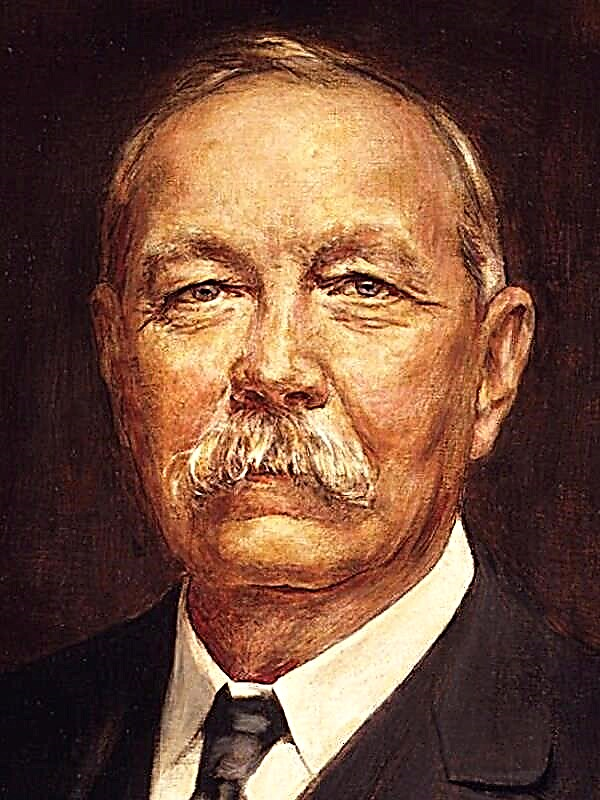
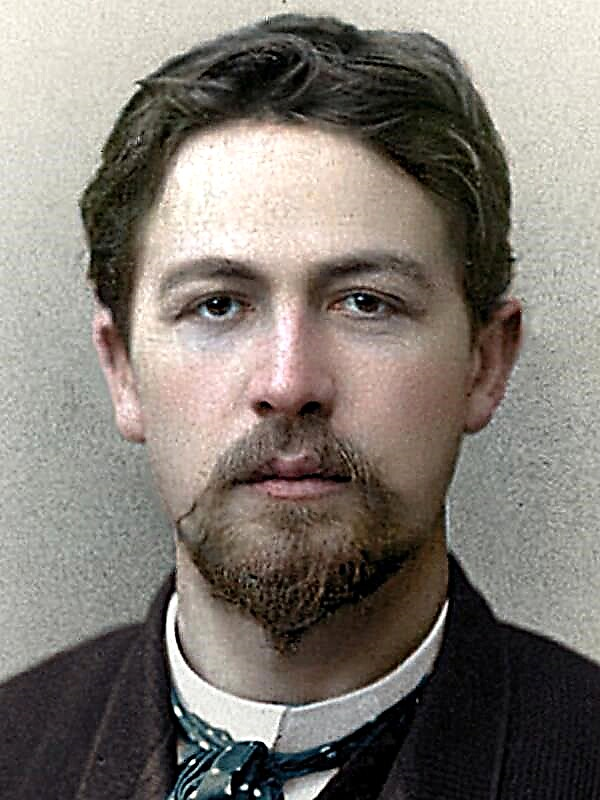
 Important years
Important years